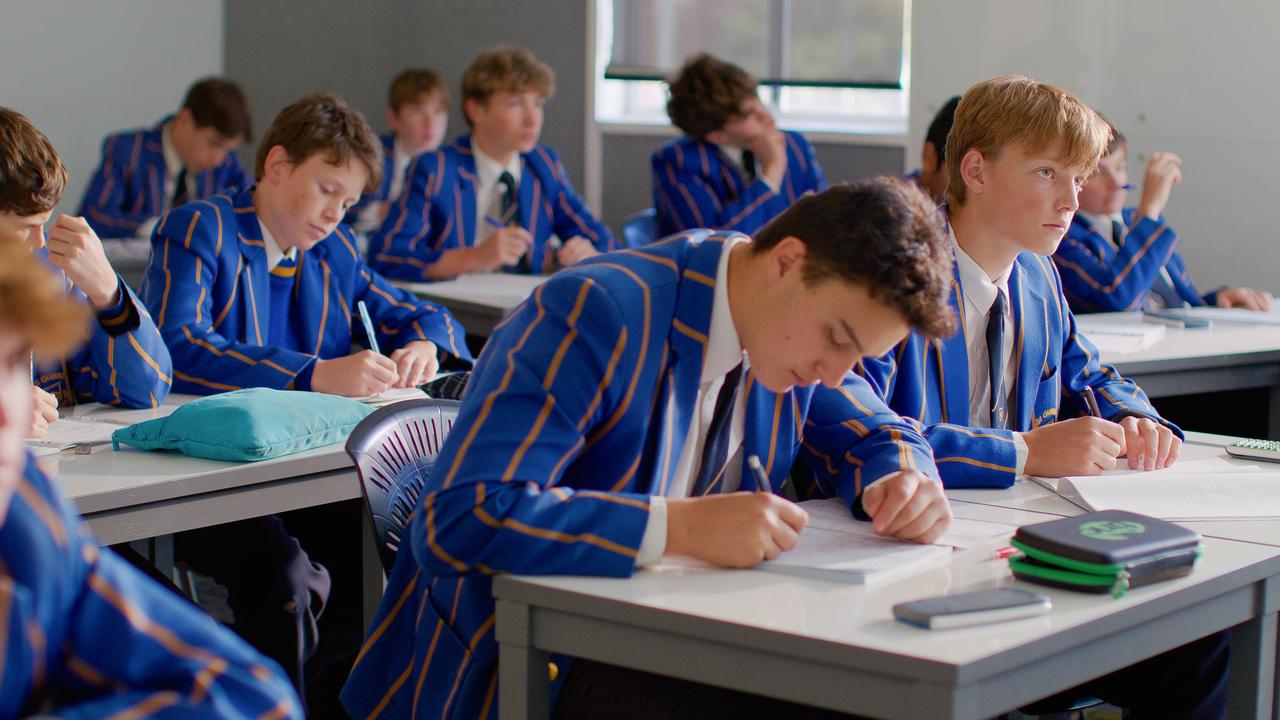Girls gain when schools hang up mobile phones
Mobile phones are increasingly being locked away and collected at the end of the day, and it’s the girls who are reaping the benefits

A question is presented to all school leaders at least once during their careers: Do we lean into technological advancements, or push back and remain in simpler times? Most recently we’ve seen it with ChatGP and the emergence of AI cheating, but one step before that was the rise of mobile phones.
In the early 2010s, debate raged over whether phones should be permitted in the classroom. Most schools caved, and mobiles became an extension of the arm and a fixture of the playground. But now mobile phones are increasingly being locked away and collected at the end of the day.
It’s the girls who are reaping the benefits – at least that’s what Loreto College Marryatville principal Nicole Archard says. She implemented a school-wide phone ban in 2018.
“When it comes to young women, the phone is a complex beast,” Archard says. “You could say the same for boys, but social connection is vital for girls and their depth of relationship is very different to boys. For a lot of girls their notion of their appearance and self-worth is tied up in social media, where they are told how they should look and behave. We create a social construction of what it should be to be female and then we bombard them with that 24 hours a day. And so limiting the amount they’re using their phones, especially during the middle of a school day, can have a positive effect on the way they see themselves.”
Mobile phones are banned in primary schools in NSW but high schools have the flexibility to decide if students use digital devices during school hours.
That could all change if Labor wins the March election, having promised to ban phones across high schools as well to mitigate the risks of cyberbullying and boost academic results.
In Victoria, all government schools require students to switch off their phones and store them securely during the school day.
Just this year South Australian schools implemented a statewide phone ban and, in Queensland, phones are prohibited in primary schools and must be switched off and out of sight in high schools.
Archard says it’s vital to consult students before implementing rules around phones, in order to find a policy that works for them.
“Our students wanted a clear policy that was reduced to a simple poster that said exactly under what conditions it could and couldn’t be used,” she says. “That being, they can be used at the invitation of the teacher and can’t be used during recess, lunch, in the corridors or in the classroom.”
Sydney girls’ private school SCEGGS Darlinghurst opted to ban students from using mobile phones this year, along with co-ed public school, Killara High.
Davidson High principal David Rule says his school has seen a dramatic decrease in behavioural issues and a boost in physical activity.
“Classrooms have effectively become phone-free and this has allowed staff to focus on educating students,” Rule wrote in a school newsletter. “In eight weeks of the policy there has been a 90 per cent reduction in behavioural issues related to phones in the school.”
eSafety Commissioner Julie Inman Grant says limiting phone use during school hours could be beneficial in the reduction of cyberbullying, which studies have shown is three times more prevalent among girls than boys.
In the past 12 months cyberbullying complaints have continued their post-pandemic surge, increasing by more than 69 per cent.
“We are starting to see more schools taking this action to ban phones in schools mainly because they distract children and take the focus away from their learning in the classroom and social interaction in the playground,” says Inman Grant.



